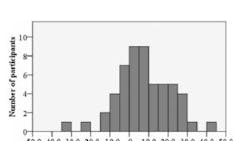Energy savings via smart meters are elusive
It looks as though the feedback smart meters provide may not do much for energy conservation in the long term. That is one conclusion of researchers from Delft University of Technology who wanted to see whether early reductions in energy consumption continued over time. They started with 304 participants and after four months gave them the option of retaining the monitor. Those who kept them were surveyed again 11 months later.
The Dutch researchers found initial savings in electricity consumption averaging 7.8% over the first four months, but these savings came down over the medium to long term. One conclusion: There's more research is needed on social science issues and contextual factors that make people change their behavior.
"Certain groups of people seem more receptive to energy-saving interventions than others," the researchers say. "These participants quickly develop new habits and exhibit larger savings than other participants. Obviously, a ‘one-size-fitsall’ approach for home energy monitors cannot be justified. For HEMS to be effective, a deeper understanding is needed that embraces social science, contextual factors, usability, and interaction design research."
You can find a copy of the Dutch research here: http://pdfserve.informaworld.com/651099__926032770.pdf
